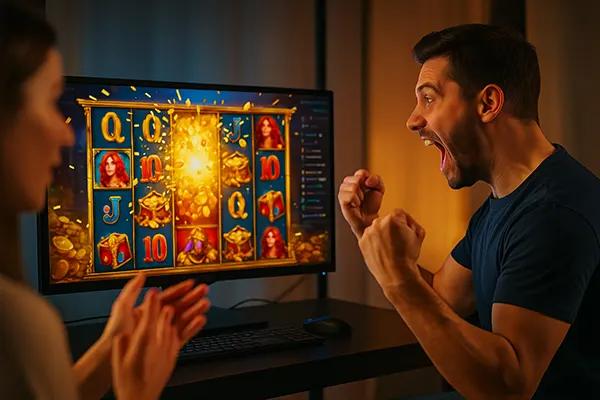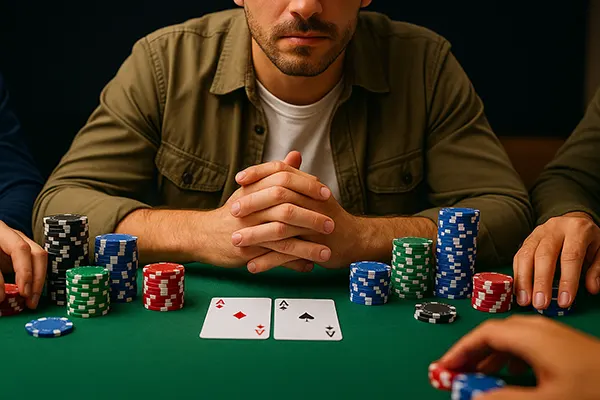
How Big Wins in Slots Influence Player Behaviour: The “Jackpot Witness” Effect
Slot machines have long captivated audiences not just with flashy visuals and sound effects but also through stories of staggering wins. Yet, behind every jackpot moment lies a powerful psychological phenomenon affecting viewers — the “Jackpot Witness” effect. This behavioural ripple emerges when one player’s massive win is observed by others, leading them to bet more frequently or with higher stakes. In an age of slot streamers and real-time casino lobbies, this effect has become more visible and influential than ever.
The Social Psychology Behind Watching Someone Win
Observing another person succeed triggers complex emotional and cognitive responses. In slot environments, these reactions are amplified by the suddenness and magnitude of wins. Social comparison theory suggests that people benchmark their own experiences against others, and witnessing someone win can create a sense of proximity to success. It’s no longer just “someone won” — it becomes “if they can win, so can I.”
Streamed content further intensifies this. When users see a streamer land a 1,000x multiplier on a game like “Sweet Bonanza” or “The Dog House” by Pragmatic Play, it can feel as though they’re part of the experience. Live chat comments such as “me next!” or “I’m jumping in” are common during these peak moments.
This emotional contagion leads to increased bets from viewers, not based on strategy or odds but on shared excitement and a perceived increase in their own chances. The win, although someone else’s, becomes motivational — often irrationally so.
Reinforcement Through Interface Design and Community Engagement
Slot developers and casino sites often use interface mechanics that highlight others’ wins — ticker tapes showing usernames and payout amounts, animated confetti, or even replay options of recent jackpots. These design choices aren’t coincidental; they’re meant to evoke envy, hope, and imitation.
In games with communal features, like live slots or group spins, this effect multiplies. The psychology of group identity takes hold: when someone from the group wins, other players feel an indirect affiliation and are encouraged to keep playing for “their turn.” It’s a form of digital peer pressure that leverages basic human tendencies.
Moreover, chat moderators and influencers often act as amplifiers, celebrating wins and fuelling engagement. This supportive feedback loop can blur the line between entertainment and impulsivity, drawing players into extended sessions they didn’t initially plan.
Evidence from Real Streams and Behavioural Data
In recent months, streams on Twitch and YouTube have shown clear spikes in viewer numbers and chat activity during big win moments. For example, a win of €120,000 on “Gates of Olympus” in May 2025 led to a 400% increase in live viewers and a wave of affiliate sign-ups using streamer codes. The psychological impact was palpable in the chat, where dozens of users declared they were “jumping into the same slot.”
Pragmatic Play’s integration of live chat into their Drops & Wins series also provides a rich environment for this phenomenon. Players congratulate each other, post emojis, and ramp up their bets after watching a win — a digital echo chamber of excitement and imitation.
Behavioural economists warn that this can create a false sense of probability. While the RTP (Return to Player) hasn’t changed, perception has. The memory of a visible win overshadows statistical reality. Players start chasing a feeling, not a rational outcome.
Case Studies and Game Design Examples
Titles like “Money Train 4” and “Wanted Dead or a Wild” are designed to showcase explosive win animations. Streamers often seek out these games for their volatility and the visual impact of their bonus rounds. Developers are aware of the marketing power these wins carry, often reposting clips on social media to perpetuate visibility.
In June 2025, a widely circulated clip of a €200 bet turning into €240,000 on “Sugar Rush 1000” triggered a spike in player traffic to the game across several European casinos. Such cases highlight how spectacle — not math — drives behaviour in many players.
Even casual players who stumble upon these clips are often drawn into playing, not because of familiarity with the game but due to the sheer thrill captured in those moments. The big win becomes not just news, but inspiration.

Risks and Responsible Gambling Implications
While the excitement of witnessing a jackpot can be engaging, it also carries risks. For some players, especially those vulnerable to impulsive behaviour, the “Jackpot Witness” effect can escalate into chasing losses or exceeding self-imposed limits. The illusion of being “next in line” can distort rational thinking and bankroll management.
Many casinos and developers now include reality checks, loss limits, and session timers to help combat impulsive play. However, the emotional pull of a witnessed win is not easily countered by a pop-up reminder. Effective protection often comes from proactive education and player tools.
Gambling authorities in the UK and EU have begun monitoring streamer-led promotions more closely, especially those linked to affiliate revenue. Regulations may evolve to address the emotional triggers embedded in such content and ensure transparency and control mechanisms are in place.
Educating Players and Encouraging Mindful Play
Awareness campaigns and in-game messaging are two of the most effective tools in promoting responsible play. Encouraging players to reflect on why they’re increasing their stakes — is it strategy, or just influence? — can interrupt compulsive patterns.
Platforms that host gambling content, such as YouTube, now include disclaimers and links to support organisations. Yet, the industry could go further by offering contextual pop-ups right after witnessing a big win, helping players pause and reassess their decisions.
Ultimately, while shared excitement is a core part of gambling culture, it must be balanced with self-awareness. Recognising the psychological mechanisms at play allows individuals to enjoy the entertainment while staying in control.
